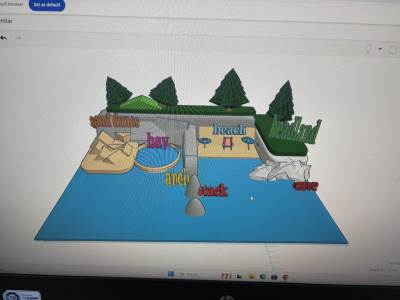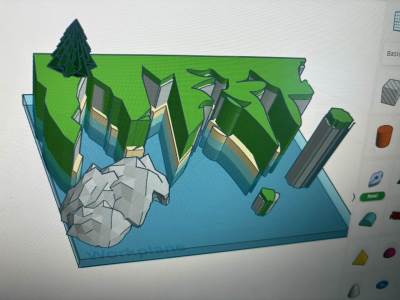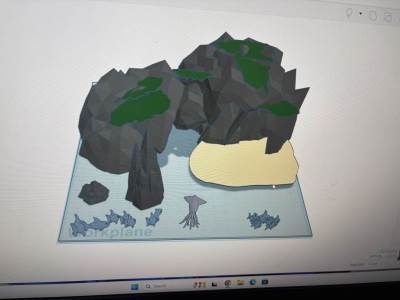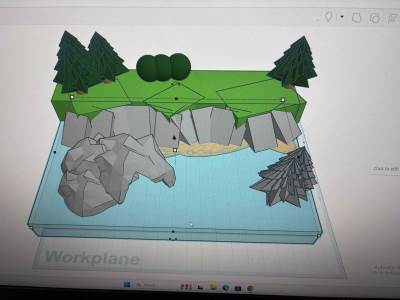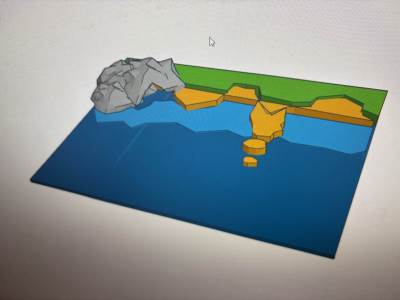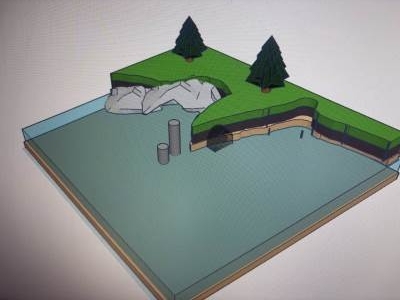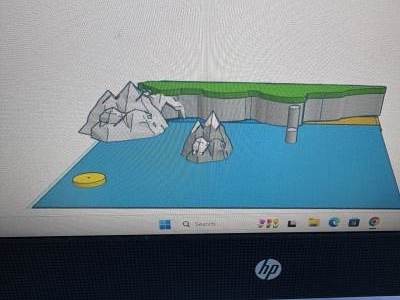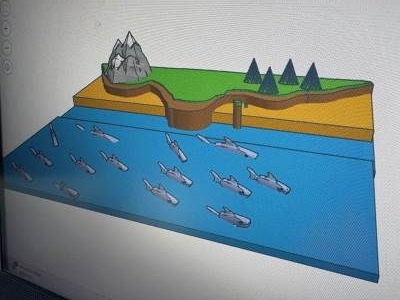Design & Technology
'Creativity is allowing yourself to make mistakes. Design is knowing which ones to keep.'
At Little Waltham C.E.V.A Primary, we believe in equipping our pupils with the skills and creativity to thoughtfully design, innovate, and make meaningful contributions to the world around them. Our Design and Technology curriculum is grounded in practical skill-building, fostering environmental responsibility, and inspiring pupils to think deeply about how technology and design can address real-world challenges.
Intent
Strong Purpose
In Design and Technology, we emphasise purposeful creation, where every project challenges pupils to think about the needs of others and the impact of their designs. Our curriculum inspires pupils to design products that demonstrate creativity, responsibility, and problem-solving. By linking projects to real-world contexts—such as renewable energy, sustainable food production, and upcycling—pupils develop an appreciation for the ways technology can benefit individuals, communities, and the environment.
Developing Every Child’s Potential
We recognise that each child has the potential to excel and make unique contributions in Design and Technology. The curriculum is inclusive, providing opportunities for all pupils to build their design and engineering skills progressively, from foundational techniques in Key Stage 1 to complex projects in Key Stage 2. Through practical, hands-on experiences, we nurture confidence and resilience, supporting pupils of all abilities as they experiment with materials, learn technical skills, and bring their ideas to life.
Building Character
Design and Technology is not just about technical skills but also about developing character. Our projects encourage perseverance, adaptability, and critical thinking, as pupils navigate challenges, receive feedback, and reflect on improvements. By tackling purposeful projects, pupils develop empathy, creativity, and a sense of responsibility, embodying school values such as compassion, forgiveness, courage, and perseverance. Projects like upcycling and linking Fair Trade to food technology projects help pupils consider the broader impact of their work on society and the environment.
Preparing Pupils for the Future
In an ever-evolving world, the ability to think critically, design thoughtfully, and solve complex problems is more valuable than ever. Our Design and Technology curriculum prepares pupils for the future by fostering a foundation in STEM (Science, Technology, Engineering, and Mathematics) skills, encouraging innovation, and promoting sustainability. Pupils engage with tools like CAD software, electronics, and programming to explore concepts in renewable energy, ethical food production, and environmental stewardship. By building these skills, pupils are well-prepared to make informed, positive contributions to society.
Implementation
Our Design and Technology curriculum is structured to align closely with the national curriculum, ensuring pupils develop essential skills and knowledge through a broad range of practical activities.
Across all key stages, the curriculum is implemented through structured, progressive units that introduce pupils to key areas of Design and Technology: mechanisms, structures, electronics, food technology, and textiles.
Key Stage 1: Pupils begin with foundational skills in mechanisms and structures, learning through projects like creating a toy car with a wind-up mechanism and designing simple structures. They are introduced to basic vocabulary, tools, and processes in a supportive environment that emphasises exploration and creativity.
Lower Key Stage 2 (Years 3-4): Pupils build upon these skills, with more challenging projects such as constructing bird boxes, creating CAM toys, and preparing healthy foods. Units also emphasise character development through projects that promote sustainability, such as upcycling and designing for others.
Upper Key Stage 2 (Years 5-6): Pupils tackle advanced skills in CAD modelling, electronics, and ethical food production, engaging with projects that reflect real-world contexts, such as designing moving wind turbines and creating Fair Trade pizzas. In Year 6, pupils participate in complex projects, including a theatre set design unit linked to the Royal Opera House Create and Design Programme and CAD programming. Throughout, pupils maintain design notebooks to document their learning, record observations, and reflect on their work.
Each unit includes a study of influential figures in Design and Technology who reflect diversity in gender, culture, and contributions, such as Wangari Maathai for environmental stewardship and Allegra McEvedy for ethical food production. These role models inspire pupils to approach their work thoughtfully, highlighting the connection between innovation and moral purpose whilst developing aspiration.
Every unit incorporates a Bible verse that underscores themes of responsibility, perseverance, and moral integrity. Verses like "Do to others as you would have them do to you" (Luke 6:31) are integrated into discussions, reinforcing values of fairness and compassion, especially in units focused on sustainable and ethical practices.
Our Design and Technology classrooms provide a practical, resource-rich environment where pupils can experiment safely. Lessons are structured to allow for hands-on activities, collaboration, and independent problem-solving. Pupils work individually and in groups, developing essential communication and teamwork skills.
Impact
The impact of our Design and Technology curriculum is evident in the confident, knowledgeable, and thoughtful pupils we nurture. Through their design projects, pupils demonstrate:
Technical Proficiency and Creative Confidence: Pupils develop a wide range of practical skills, from basic construction and food preparation in Key Stage 1 to advanced CAD design, electronics, and programming in Key Stage 2. By creating purposeful, well-constructed projects, pupils gain confidence in their creative and technical abilities.
Ethical Awareness and Compassion: Projects that focus on sustainability and Fair Trade foster a deep sense of empathy and responsibility. Pupils learn to make choices that respect others and the environment, understanding the global impact of their decisions and actions. This reflects our commitment to teaching pupils the importance of compassion and stewardship.
Resilience and Perseverance: Pupils face and overcome challenges within each project, developing resilience, patience, and critical thinking. They learn to value feedback, embrace collaboration, and celebrate achievements, building a mindset that prepares them for future challenges.
Preparation for the Future: Pupils leave Little Waltham equipped with foundational skills for future learning in STEM fields and an appreciation for ethical decision-making. Our focus on CAD, electronics, and sustainable practices prepares pupils for a future where innovation, technology, and environmental responsibility are interconnected.
Units of Study Across Little Waltham C.E.V.A Primary School
Through our Design and Technology curriculum, we empower pupils to become thoughtful creators and responsible citizens, ready to make meaningful contributions to the world. By fostering a love for design, engineering, and ethical practices, we encourage pupils to let their light shine, inspiring them to create, innovate, and impact others with their talents and values.
Key Stage 1
Year 1:
Unit 1: Mechanisms - Creating a Toy Car with a Wind-Up Mechanism
Unit 2: Structures - Designing and Making a Boat to Hold an Object
Unit 3: Food Technology - Preparing and Making a Summer Fruit Salad Breakfast Pot
Year 2:
Unit 1: Textiles - Creating a Hand Puppet Linked to a Storybook
Unit 2: Food Technology - Making and Designing Sushi
Unit 3: Structures - Designing, Testing, and Creating a Bridge Based on Designs
Lower Key Stage 2
Year 3:
Unit 1: Textiles - 2D to 3D - Designing and Making a Soft Toy
Unit 2: Food Technology - Designing and Making a Healthy Break Time Wrap
Unit 3: Structures - Using Woodwork to Create a Bat Box, Bird Box, or Hedgehog House
Year 4:
Unit 1: Food Technology - Designing and Creating a Healthy Soup
Unit 2: Textiles - Designing and Creating an Iconic Fashion Item Inspired by Designers
Unit 3: Electrical Systems - Creating an Electrical Game
Upper Key Stage 2
Year 5:
Unit 1: Food Technology - Creating Flatbread and Hummus
Unit 2: Mechanical Systems - Creating and Designing CAM Toys with Pulleys and Levers
Unit 3: Upcycling - Designing, Making, and Marketing a Product Using Recyclable Materials
Year 6:
Unit 1: Set Design – Royal Opera House Theatre Set Design for “Alice’s Adventures in Wonderland”
Unit 2: CAD Programming
Unit 3: Food Technology - Designing, Marketing, and Creating a Fair Trade Pizza
Year 6 CAD Design







